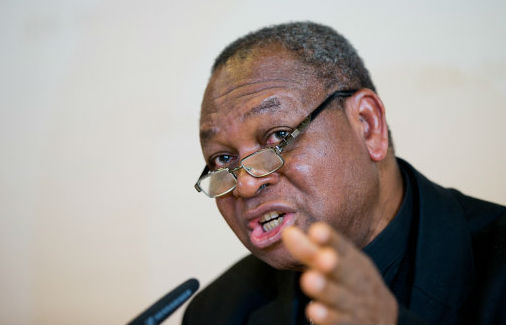Following the recent rise in ethnic tensions in Nigeria, Cardinal John Onaiyekan has called for a change in the way the country is governed, saying it “must restructure if it is to survive”.
After the 50th anniversary of the declaration of an independent Republic of Biafra earlier this month, secessionists took to the streets of southern Nigeria, renewing their call for an independent state.
That has, in turn, sparked ill will toward southern secessionists, especially from northern Muslims. Last week, a movement called the Northern Youth Groups, called for "sustained, coordinated campaigns" to remove Igbo people - who derive from the southeast - from the region.
The widespread slaughter 51 years ago of Igbos living in Nigeria's north helped spur the Biafran secession from 1967-70, which led to war against Nigeria's central government and a famine in which millions died.
“There is no part of Nigeria where there is no cause for anger, no part. Maybe some people are expressing their anger more than the others. But everywhere, people are dissatisfied,” said Cardinal Onaiyekan at a press conference on 22 June in Abuja.
The Cardinal said the problem lay in how the country was governed - particularly in the areas of equality between differing tribes and in the country’s justice system.
Onaiyekan said that the country’s principle of ‘federal character’ - which is supposed to see employment equally distributed across the country’s tribes and geographical regions - is failing.
“Federal character can not mean that some parts of Nigeria will be favoured over others," he said.
“If the federal character leads to injustice and marginalisation, then, it does not make sense. We must change the way we are doing thing, we cannot continue like this,” said the Cardinal.
“If we do,” he warned, “there will be more anger and more calls for change."
He called on the government to urgently address “the sense of dissatisfaction, exclusion, injustice that people are feeling.”
The answer, he said, did not lie in creating more - or separate - states.
What is necessary is to look at how the government functions, he continued, asking how - under the present system - each Nigerian can be “treated with justice, respect and dignity.”
“We need to restructure if we want the country to survive. The truth is that things are not organised properly and it makes the people [to be] dissatisfied. It is not only the Biafrans who are disgusted with this country; a lot of us are,” he said.
He challenged the recreation of an independent Republic of Biafra saying: “It is like a father who is very angry with his son; you will still not throw him away.”
Last week, Pope Francis delivered an ultimatum to the priests belonging to the Nigerian Diocese of Ahiara, after they continued their refusal to accept Bishop Peter Ebere Okpaleke, who was appointed Bishop of Ahiara by then- Pope Benedict XVI in 2012, on the grounds that he is not a local priest.
The diocese of Ahiara is in Mbaise, a predominantly Catholic region of Imo State in southern Nigeria. Bishop Okpaleke is from Anambra state that borders Imo.
The rebellious bishops have been given 30 days to write a letter promising obedience to the Pope and accepting the bishop appointed to their diocese in 2012. Priests who do not write the letter will be suspended.




 Loading ...
Loading ...